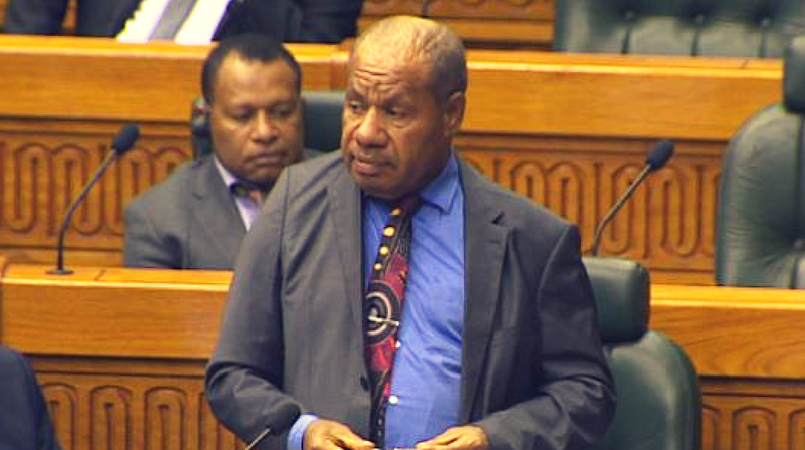
All elementary schools in Papua New Guinea will be phased out by 2021 as part of the Government’s Reformed Education System.
Elementary grades from One to Three will be pushed back into the Primary System, which will now only cater for Grade One to Six while grades Seven and Eight will be pushed back into the High School System.
Education Minister Nick Kuman clarified this in Parliament this week.
Minister Kuman was responding to Nuku MP Joe Sungi in Parliament when he said the restructure was to correct the mistake by previous governments to the elementary school system in the country.
“We made mistakes in the past by introducing elementary school, taking the young kids away from the primary school system in the country and then introduce what they call vernacular, tok ples, Tok Pisin, as a form of instruction to our students.
“The students that progress from Grade 3 onwards have become a serious problem. Kids are not able to read and write, were not able to count and recognise the colours, the alphabet, and it’s a very difficult problem.”
He said the restructure will makes changes to the Primary and High School level.
“This government recently made a decision to restructure our school structure in our country.
“That is to take the elementary school system away from the village level, at the ward level and bring them back to the primary, and get the from 1 to 6 at the primary level. And push grade 7 and 8 into high schools, and 11 and 12 into national high school.
“That’s been running for 2 years now, we are pushing elementary out altogether,” said Kuman.
Markham MP, Koni Iguan, later asked Kuman what plans the Government had to cater for the increased number of students into the high schools given that many districts only had one.
“Because we only have one high school to accommodate how many primary schools we have in our District. For example to day in Lae, Omili Primary School, they have eight classes of Grade Eight. And if you’re going to send all these eight classes to Grade Nine, and other schools having six Grade Eight or four Grade Eight classes and you’re going to send all these students up to Grade 10, how are you going to accommodate them in one high school in the District?” Asked Iguan.
Kuman said the restructure was instituted several years ago and it was incumbent on the respective MPs to use their district and provincial funds wisely to build the necessary infrastructure.
He said K2 million should be allocated annually to build education infrastructure.
“The restructuring of the education system in the country we allow for one elementary school per ward in this country, one primary school per three wards and one high school per LLG, and one secondary school per district, and one vocational school in every LLG,” Kuman said.
“And this was the restructure that we undertook in the last term of Parliament, and I’m pretty sure that if you’re concerned about your own electorate, I’m pretty sure the former leaders of Markham would have undertaken some of those reforms that we want.
“By the time we reach the Medium Term Development Plan (MTDP) for this country is by year 2030, those reforms should be completed. Meaning that why did the Government put 20 percent of DSIP and PSIP into our program as policy of the government when we started in 2012?
“The direct intervention of the Government of these funds need to go straight to education, not for them to buy school consumables such as biro and text books for students to use. You use those funds to develop capacity at every level of school system you have in the district and the province.
“These are the reasons those monies are put there. You need to build classrooms, you need to build teachers’ houses.”
Minister Kuman added this is part of the reintroduction of the Standard Based Education system in PNG.
(Education Minister Nick Kuman)
